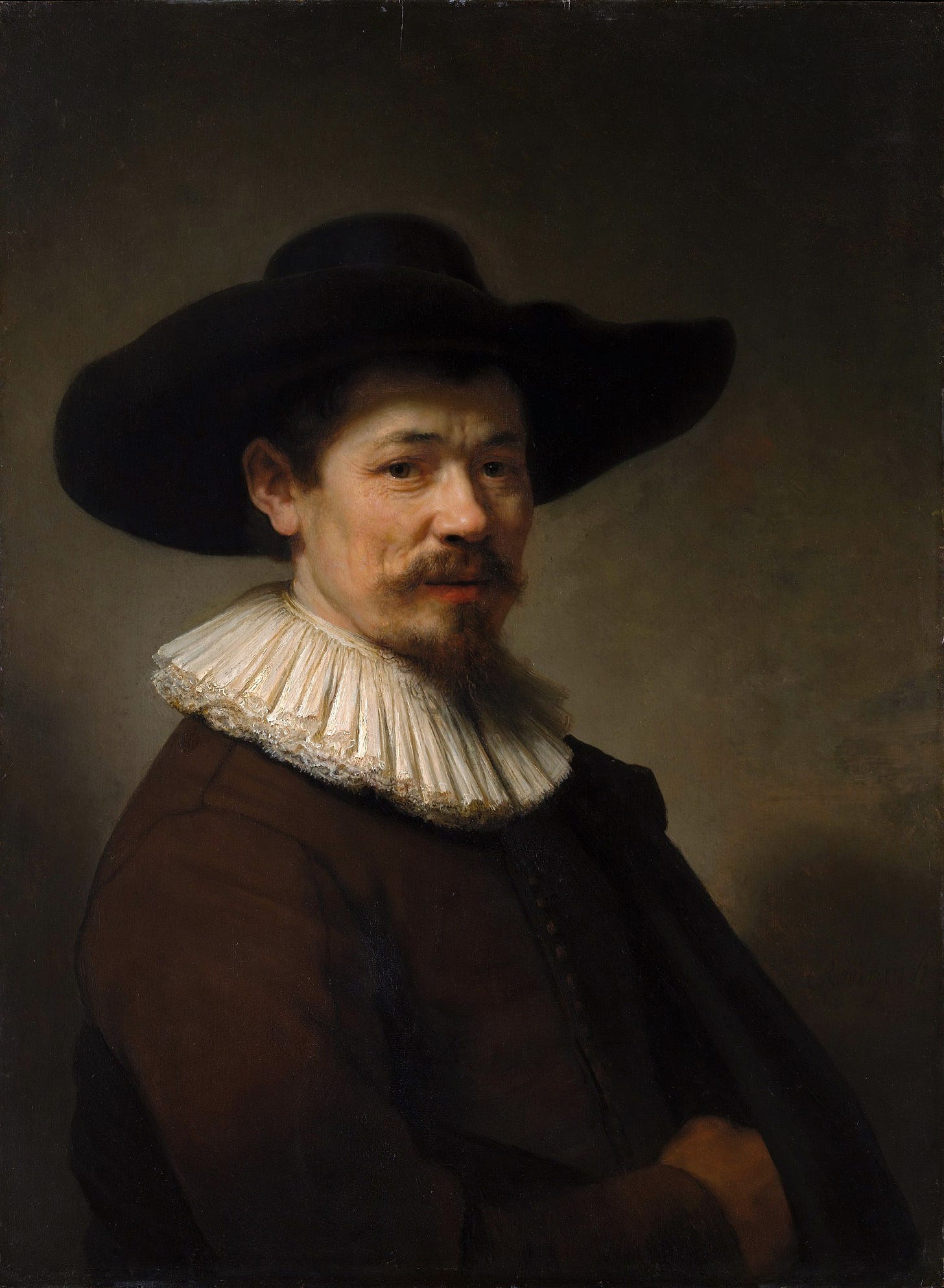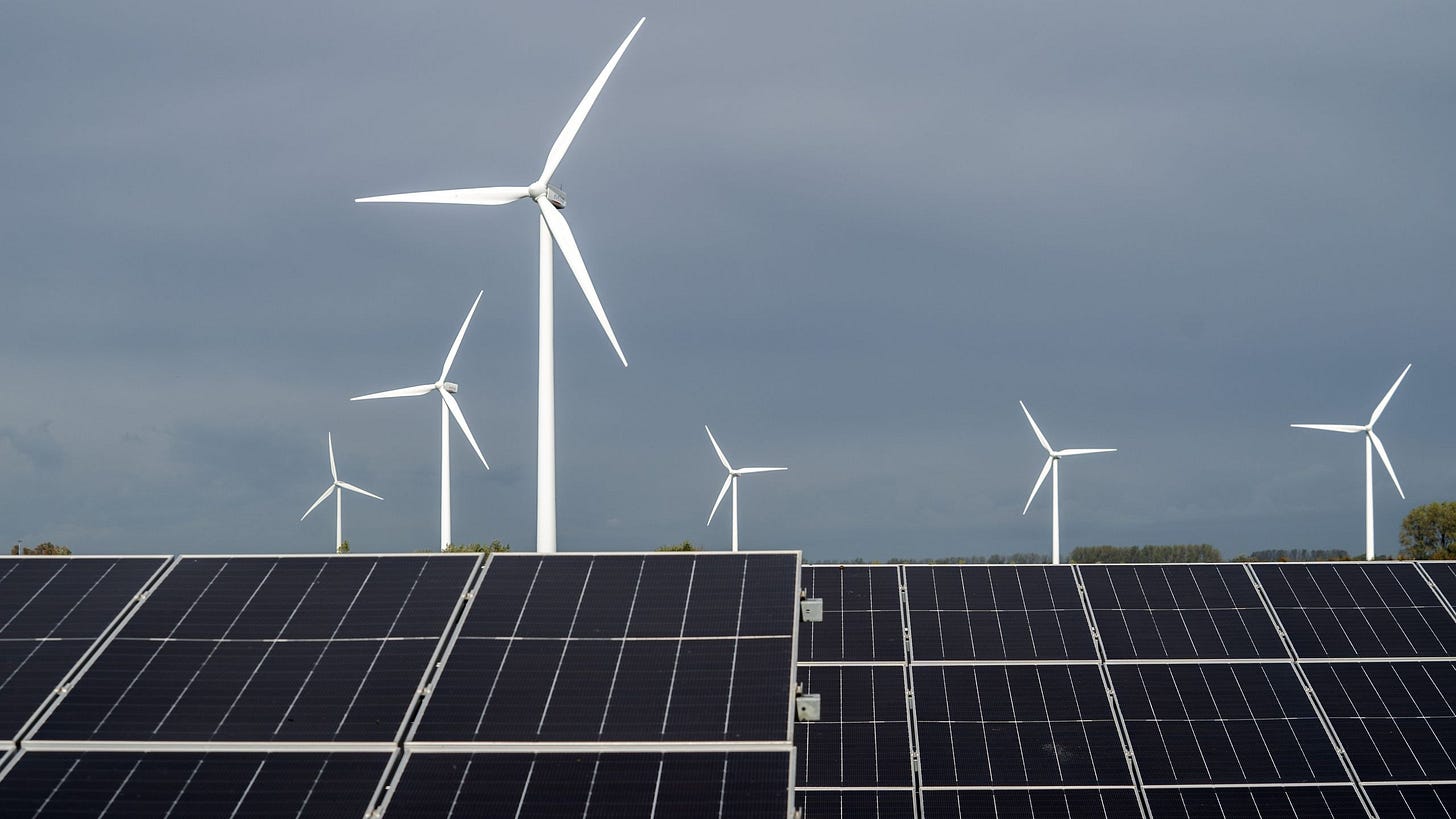Five Short Topics
Subjects that stuck me, but for which I didn't have the time to write a whole post.
1. The Unraveling of Space-Time;
Quanta Magazine just posted a special issue called “The Unravelling of Space-Time”. I haven’t read all of it yet (but will have in the next couple of days), yet it comes highly recommended.
It’s a beautifully designed issue—kudos to Quanta Magazine’s web design team—while being a highly thought-provoking read, as well. The theme being that our current understanding of space-time may not be the last word on it; that is, there might be a layer, a fundamental reality underneath space-time that generates it.
At the moment, I don’t agree, as I strongly suspect that our space-time must be fine-grained—maintain a discrete level—for things like movement to be possible at all1. I’m itching to explain more, but I’m waiting for a particular story of me that expands on this to be accepted and published (so there are no spoilers). In time, I’ll get to the bottom of this.
2. For the First Time, more than 50% of Electricity generated in The Netherlands was by renewable resources (for the first 6 months of 2024);
Article in NOS news (in Dutch): “Zon en wind voor het eerst belangrijkste bron van electriciteitsnet”. Main reason: it’s cheaper than using fossil fuels. And this is what will ultimately drive the transition to renewable energy: while it’s undeniably better for the environment, full-scale adoption will happen for economic reasons (unfortunately, as the current climate crisis was predicted in the 70s by Big Oil and could have been addressed by then). Total electricity usage in The Netherlands increased by 5%, topping out just below the level before COVID-19.
With the caveat that other sources like fuel for cars and gas for heating still form the majority of my country’s total energy consumption, meaning that—at the moment—17% of all our energy usage is from renewables.
So while we reached one milestone, we still have a considerable amount to go.
3. Wattpad and Inkitt;
I’ve started to post the first chapter of “Forever Curious” on Wattpad and Inkitt. This will run in parallel (and with a considerable delay) from here. I’m not leaving this platform, as I’m enjoying it very much. I’m just trying out different strategies to expand my audience. We’ll see how it goes.
For those Wattpad and Inkitt readers, here are the links:
I have some other things in mind, as well. I just need the time and resources to implement them.
4. Thoughts on Originality;
In his essay “Sorry Ted Chiang, humans aren’t very original, either”, where he reacts on a piece by Ted Chiang called “Why A.I. isn’t going to make art” that appeared in The New Yorker,
declares that “humans are not very original”, that only 1% of what we create may be original, and that even a writer like Ted Chiang may be 10% original, at best”.What is originality? There are various definitions of it, and in his piece @ErikHoel is applying the most strict interpretation; namely that something is only original if nothing of it—not a single piece—has been mentioned or published before. Otherwise it’s just a ‘kaleidoscopic remix’.
In that case, I suspect only mathematicians who design and/or discover extremely abstruse and abstract forms of the mathematical field are truly original. I mean, even when a group of physicists began developing string theory, they were able to use existing mathematics, like Calabi-Yau manifolds.
Does this make the development of string theory not original? I’d say plenty of it is highly original.
Or even more specific: Albert Einstein developed General Relativity that re-imagines Space-Time (see topic 1 above) as a continuum—a huge sheet, if you like—that is dented by mass. Orbits of planets are determined by this curvature of Space-Time. Both dented sheets (of metal, if you like) and the principle of orbits have been made and/or discovered before, so this means that Einstein was not original? That General Relativity is just a ‘kaleidoscopic remix’?
Excuse me if I disagree. I think that implementing previous concepts intentionally in a way that hasn’t been done before—a creative juxtaposition of principles—is original. AI’s just mix everything without prejudice, then throw it to the wall of public opinion (the internet), and then don’t even wonder what sticks. Einstein made this ‘creative juxtaposition’—possibly the exact opposite of ‘kaleidoscopic remix’—very intentionally, after years of deep thought about the subject. For that, consciousness is needed (and is why A.I., as Ted Chiang has it, will not produce something similar2). This is part of the creative process that makes progress possible, and it’s still happening today.
So humanity’s creativity is well above 1%, IMHO. YMMV.
5. Our old Dutch tolerance has degraded into questioning non-conformity;
This is a personal observation.
Make no mistake, the Dutch have always had a certain distrust and disdain for people who ‘do not behave normally’. Even when you’re a Dutch celebrity, a superstar or a genius, you’re still supposed to behave normally—where the normal is determined by the masses, who barely notice that this ‘normal’ they’re using has been (and will be) shifting over time—even when your abnormal skills made you into a celebrity, superstar or genius.
Personally, I like most eccentric people, as they are much more interesting than the average John Smith or Jane Doe. Yet in The Netherlands there’s this constant social pressure to conform to normality3 (whatever that is), often by complaining to the authorities (mostly through anonymous means) or exhibiting faux authority when they see something out of the ordinary (that is not against the law).
Two personal examples:
In many Dutch coffee shops4 there are sections—in some it is not allowed at all—where it is forbidden to use your laptop. When I told my sister this—she visited The Netherlands a few weeks ago—she looked at me in disbelief. Then we went into a coffee shop in Den Bosch where this was the case and I showed her the sign on the table we were seated at stating that laptop users had to move to the other side of the shop. She still looked at it in disbelief. To the best of my knowledge, this only happens in The Netherlands.
Why is this? I’m not sure, but I suspect that some customers have complained that it’s not ‘gezellig5’ if people in a coffee shop type on their laptops, so they should be either forbidden from doing that and shown the door. As is often the case in The Netherlands, some kind of compromise is reached by subdividing the coffee shop in a laptop and non-laptop section.
In the past decade I have visited many coffee shops around the world6 and in none of those have I ever been asked to stop using my laptop. Only in The Netherlands (there are also plenty of coffee shops here that don’t do this). If in doubt, I go to a library, as a library will often not only have a coffee shop, but it will be more affordable, as well7. Once I sat down in a Belgian coffee shop with my laptop open, the barista said a combination of words that didn’t make sense to me as he placed my order on my table. “The WiFi password,” he said as I looked at him questioningly. Now that is what I call service.8
The other matter being that only in The Netherlands, people disturb me when I’m using my laptop in a public park. This happened to me twice recently. In one case a middle-aged guy asked me if I was writing about the history of Den Bosch (why would I?), and when I inquired why he felt compelled to disturb me, he avoided any real answer. This is the kind of nosiness the Dutch can display when they see something out of the ordinary.
Now I don’t think people working on their laptop in public places is out of the ordinary, but some people do. When I asked the above-mentioned person why he didn’t bother people using their smartphone in the park, he just looked at me with a puzzled expression. To him, people using their smartphones is the current idea of ‘normal’, while people using a laptop are not.
A few days ago, I was happily typing away during a bout of glorious late summer weather as a group of teenagers on the bike path next to the park started shouting at me, wanting to know what I was doing. Luckily, we have very strict privacy rules in the EU, so I’m not compelled to answer that (it’s nobody’s business but mine9). So I ignored them, even as they shouted that ‘this was private property (it was not) and I should go away’ or they would ‘call the police’ (they didn’t). After a few minutes, they gave up. Again, this never happened to me when I was writing in public parks in other countries, as people leave you in peace.
Oh well, end of rant10.
Author’s note: Right now, I’m on a short holiday in Torino, Italy. The weather is still quite nice, here and in nice weather I prefer to go to a park and do some writing—fiction writing. I’m in the middle of “The Three Constructors of Reality” at the moment11.
This means that it’ll be a bit light on my posting here on Substack, but don’t fear: the moment it gets too cold to comfortably write outside, my focus goes to editing, non-fiction (here on Substack) and projects. So there will be much more posting after half October, give or take.
Still, in order not to go totally quiet, I’ll keep up the postings of the ‘Replicant’ and ‘Forever’ parts, and the odd short one like this. These five topics are either topics that recently caught my attention, or are works in progress on which I intend to expand later on.
Anyway, many thanks for reading and welcome to the new subscribers!
As explained by Dewi in part 42 of “The Replicant in the Refugee Camp”;
It might create a remix that seems to do the same, but will not have the deep reasoning behind it that makes it work, hence will be utterly unable to explain why it works, and to expand on it, since it has no consciousness. Basically, this is what Ted Chiang argues in his New Yorker piece, and I agree with that (if that wasn’t clear already);
While the same people enforcing this ‘normality’ go on holidays to see special things, to complete bucket lists of things that are definitely not normal. And they fail to see the paradox and hypocrisy in this;
The ones actually serving coffee, not the legalised hashish and weed outlets;
This is a Dutch word meaning the feeling ‘normal’ Dutch people get when they are in a space that radiates said normalcy and are in the company of like-minded ‘normal’ people. It expresses the warm feeling of glowing conformity in the lap of the utter mundane;
From memory: Belgium, Germany, France, Denmark, Norway, Finland, the UK, Ireland, Switzerland, Italy, Spain, Portugal, the USA, Canada, Mexico, Chile, Bolivia, South Africa, Japan, South Korea, China, Singapore and Australia;
Coffee is expensive in The Netherlands. Expect to pay €4 and upwards for a coffee while in the coffee shop in Torino (Vittorino Cafè, highly recommended) the cappuccino I’m having still is only €1,60;
What happened to the days when they were simple waiter/waitresses?
And there’s a world of difference between a fellow writer asking what you’re writing and a bunch of obnoxious teenagers—says the old man—shouting at you from a distance. I’ll answer the former, but ignore the latter;
But I’m happy to get it off my chest…;-)
Somewhat over it, I hope. When I wrote the first part covering the trip from Alpha Centauri to Procyon, this section ballooned. It became so big that I decided to cut it out—it isn’t essential to the novel, and functions better as an accompanying piece—and turn it into a separate novella. This has cut some 37,000 words from the novel, which would otherwise have ended up close to (or over) 140K. Trying to keep it between 100K—110K, like its predecessors;









